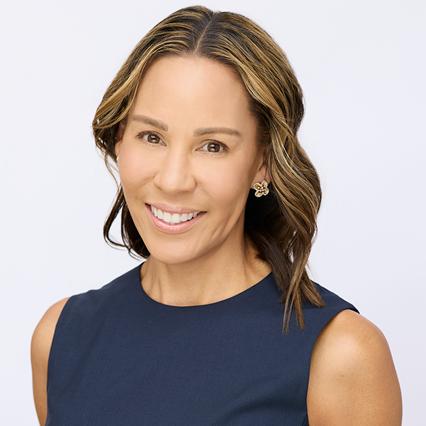
We recently caught up with Justine Lee (NY, ’00), President and CEO of ClimateHaven, a climate tech platform focused on breakthrough solutions in energy and climate resilience. In 2000, Justine started at Davis Polk in the New York office as an associate first in the Executive Compensation group and then in the Corporate group. After ten years with the firm, she transitioned in-house to Motivate (the operator of Citibike) as Vice President, Corporate Development and Legal, and then Lyft Urban Solutions after Citibike’s acquisition by Lyft.
In 2019, Justine joined 25Madison where she served as Partner and Chief Operating Officer before joining ClimateHaven in 2024. She continues to serve as a Senior Advisor to 25Madison.
Read on to learn more about Justine’s career and her leadership in climate technology, including her service on the board of the Governors Island Foundation.
Looking back at your time at Davis Polk, what skills or experiences have you found the most useful in your career?
My training at Davis Polk has informed how I approach every role that I’ve had since then – whether in legal, business or venture capital. In particular, I think being an M&A lawyer gave me a love of dealmaking, which carries over whether you are doing partnership deals for your company, raising capital or investing. When I moved from the general counsel role to the business side at Motivate, it felt seamless to take the lead on fundraising for the company and then ultimately to lead discussions for our exit to Lyft. And when I transitioned to venture capital at 25Madison, I used the same approach to evaluate potential investments and negotiate term sheets.
What are some challenges you face in leading an organization that is focused on climate technology innovation and entrepreneurship?
The Biden-era infrastructure law and Inflation Reduction Act ushered in some incredible tailwinds for climate technology and propelled a lot of innovation in the space over the last few years. With the new administration’s shift in priorities, the next few years are going to be more difficult. Our Department of Energy funding is in limbo, but we are optimistic that corporate partners, foundations and other funders will step into the breach so that the startups we are working with don’t lose momentum. At ClimateHaven, our companies are developing everything from advanced water treatment to bio-based chemicals to alternative aviation fuels. Investment in this kind of breakthrough technology is critical to industrial innovation and energy resilience, not just carbon reduction.
Can you tell us about your work with the Governors Island Foundation, a nonprofit that works to ensure Governors Island’s future as a vibrant public resource for New Yorkers?
I derive great satisfaction from my board work. It is an incredible opportunity to work with colleagues from different sectors and professions and to learn how their perspectives on the organization’s opportunities and challenges may differ. I’ve been involved with the Governors Island Foundation for many years now, and it has been incredibly rewarding to witness how the team has transformed the island into a beautiful open park space, renovated the landmarked buildings from the Coast Guard era, and launched a new initiative dedicated to climate research and technology. I am hopeful that Governors Island will become a living lab for climate resilience and adaptation, just a four-minute electric ferry ride from Wall Street!
For alumni or current lawyers considering a move into venture capital, what skills do you recommend that they focus on developing?
Beyond anything else, I would be focusing on the advancement in artificial intelligence and how it is reshaping everything we do. Some professions will move faster than others to embrace it, but I don’t think we can overestimate how much it will disrupt established industries and professional paths. Venture investing is by definition forward-looking. To be successful in it, one must be thinking about and immersing oneself in this seismic shift that is happening.
Staying ahead in venture capital requires a forward-thinking mindset. Whatever your career goals, look for opportunities to stand out today. I often hear people recommend “keeping your head down and focusing on doing a good job.” I think that doing a good job is table stakes. What you need to do is to keep your head up and recognize patterns and shifts and be proactive in driving forward the initiatives you care about.
You’ve had a dynamic career. How do you recharge and stay balanced amid all of your responsibilities?
I was really fortunate to be at Davis Polk for the first part of my career. I gained the trust and confidence of the partners I was working with. They were incredibly flexible and supportive in enabling me to work reduced hours and move off of deal work during key years when I wanted to focus on my kids. Then, when I was ready to amp it back up, they sensed my urgency to “catch up” and gave me opportunities working with the Management Committee in advancing strategic priorities for the firm. When I moved in-house in a general counsel role, things got intense for a while. They have kind of stayed that way ever since. But I think that’s more about the way I’m wired than any job.